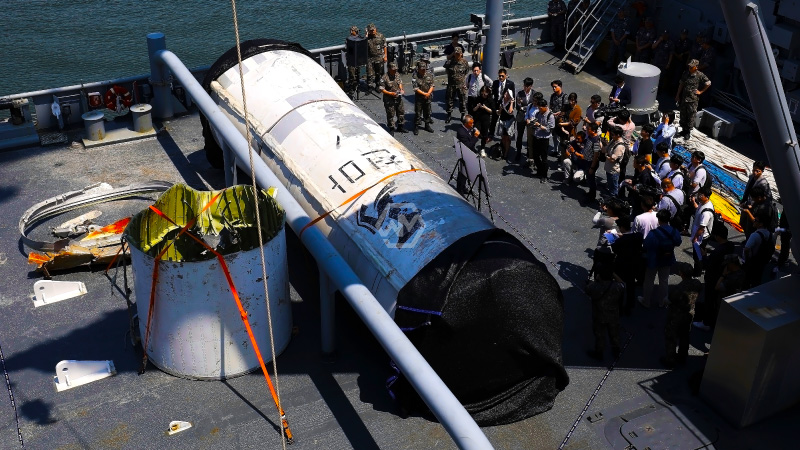After examining its debris, South Korea declared on Wednesday that the first spy satellite launched by North Korea had “absolutely no military utility.”
In May, North Korea attempted to launch what it claimed was its first military spy satellite, but the rocket that was carrying it crashed into the ocean shortly after takeoff.
North Korean Spy Satellite
An intricate, 36-day South Korean salvage operation that included a fleet of naval rescue ships, minesweepers, and deep-sea divers was sparked by the catastrophe. Following the operation’s completion on Wednesday, the defense ministry in Seoul announced that the collected rocket and satellite parts had been examined by specialists in South Korea and the United States.
According to the ministry, they “evaluated it had no military utility at all as a reconnaissance satellite.” The spy satellite, according to North Korea, was created as a necessary counterweight to the expanding US military posture in the area.
- South Korea declares North Korea’s spy satellite has no military utility.
- Korean and US specialists examine collected rocket and satellite parts.
- North Korea’s satellite launch violates UN resolutions, denounced by the US, South Korea, and Japan.
The creation of a military spy satellite is Kim Jong Un’s top objective in North Korea. Pyongyang has promised to carry out another soon. According to state media, the governing party in North Korea “bitterly” condemned the individuals in charge of the disaster last month.
North Korea’s May 31 satellite launch was denounced by the US, South Korea, and Japan as a violation of UN resolutions forbidding the nuclear-armed nation from deploying ballistic missile technology.
According to analysts, the development of intercontinental ballistic missiles and space launch capabilities share a large amount of technology.
After several failed attempts in recent years to discuss Pyongyang’s denuclearization, relations between the two Koreas are at their lowest points in years, and diplomacy is at a standstill.
Kim has referred to North Korea’s nuclear program as “irreversible” and advocated for increased manufacturing of weapons, especially tactical nuclear weapons.



